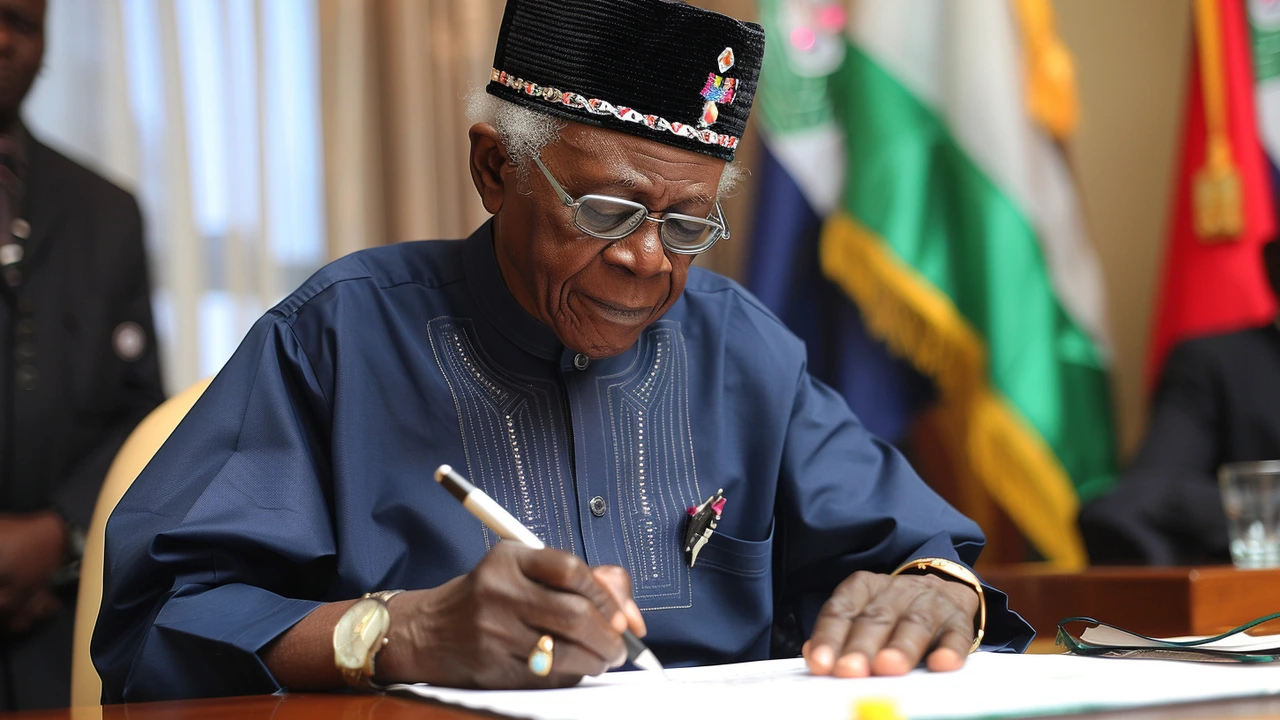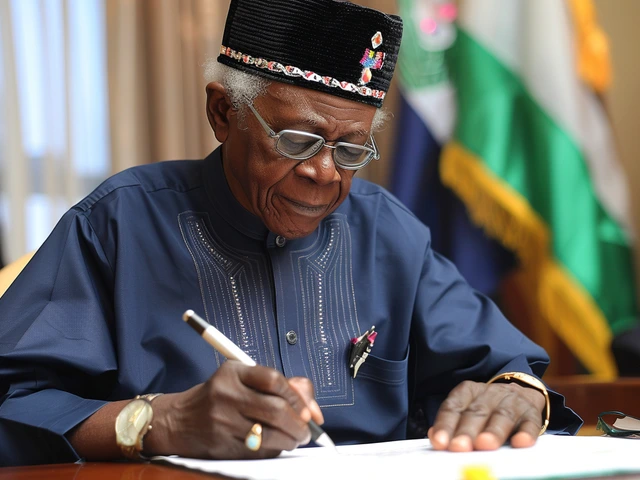
President Tinubu Officially Reinstates 'Nigeria, We Hail Thee' as National Anthem
President Tinubu Reinstates 'Nigeria, We Hail Thee' as Nigeria's National Anthem
In a move signaling a profound cultural shift, President Bola Tinubu signed the National Anthem Bill 2024 into law on Wednesday, reinstating the old national anthem, 'Nigeria, We Hail Thee.' This legislative action officially replaces the contemporary anthem, 'Arise O Compatriots,' and heralds a return to Nigeria's historical roots. The Senate President, Godswill Akpabio, made the announcement during a joint plenary session attended by President Tinubu, effectively restoring the anthem that was originally used between 1960 and 1978.
Legislative Process and Swift Approval
The National Anthem Bill 2024 received expedited attention from both the Senate and the House of Representatives. Lawmakers moved quickly to pass the bill, reflecting strong support across the political spectrum. According to sources within the legislature, the bill was fast-tracked due to its cultural significance and broad consensus on its importance. The sense of urgency was palpable, with the legislative bodies promptly clearing the hurdles to get the bill to President Tinubu's desk for his signature.
This move is viewed by many as an effort to rekindle national pride and a sense of unity among Nigerian citizens. By bringing back 'Nigeria, We Hail Thee,' the government aims to evoke the spirit and optimism that marked Nigeria's early years of independence. The old anthem is revered by many Nigerians for its historical significance and emotional resonance.
A Historical Perspective
'Nigeria, We Hail Thee' served as Nigeria's national anthem after the country gained independence from British rule in 1960. The anthem is a symbol of Nigeria's rich cultural heritage and the aspirations of a newly independent nation. It was penned by Lillian Jean Williams, a British expatriate who lived in Nigeria. The melody was composed by Frances Berda, another expatriate, reflecting Nigeria's cosmopolitan early days.
The anthem was used officially until 1978, when it was replaced by 'Arise O Compatriots,' a more modern anthem written with contributions from Nigerian musicians and lyricists. While 'Arise O Compatriots' has been praised for its patriotic fervor and relevance to contemporary Nigeria, many have argued that 'Nigeria, We Hail Thee' holds a unique place in Nigeria's collective memory.
Public Reaction
The reinstatement of 'Nigeria, We Hail Thee' has elicited mixed reactions from the public. Many older Nigerians who grew up singing the anthem have welcomed the change, expressing nostalgia and a renewed sense of national pride. Social media buzzed with debates, reminiscences, and varying opinions about the potential impact of the reintroduced anthem on national unity and identity.
Younger Nigerians, particularly those who have only known 'Arise O Compatriots,' have taken to platforms like Twitter and Facebook to voice their thoughts. Some have expressed curiosity about the old anthem, while others have shown resistance, questioning the necessity of such a change at this juncture. The overall discourse highlights the generational divide and varying perceptions of national symbols.
Political Implications
Politically, the signing of the National Anthem Bill 2024 is seen as a strategic move by President Tinubu to solidify his legacy. Since taking office, Tinubu has focused on policies aimed at fostering national unity and cultural pride. Reinstating a beloved symbol from Nigeria's past aligns with his administration's broader goals of nation-building and reconciliation.
This move also comes at a time when Nigeria is facing numerous challenges, ranging from economic difficulties to security concerns. By reinstating 'Nigeria, We Hail Thee,' the Tinubu administration might be attempting to draw on the country's history to inspire contemporary solutions to modern problems. Political analysts argue that such symbolic actions can have significant impacts on national morale and political stability.
Conclusion and Future Outlook
The reinstatement of 'Nigeria, We Hail Thee' marks a noteworthy chapter in Nigeria's ongoing narrative. It reflects a conscious effort to bridge the past with the present, leveraging historical symbols to forge a more united and optimistic future. As Nigerians begin to adapt to this change, the hope is that the resonance of the old anthem will cultivate a renewed spirit of patriotism and cooperative nation-building.
Looking forward, it will be interesting to observe how this change affects not just the socio-cultural fabric of Nigeria, but also its political landscape. The long-term impact of such a symbolic gesture will depend on how it is embraced by the diverse segments of Nigerian society. As the country moves ahead, the melody of 'Nigeria, We Hail Thee' might very well become an anthem of unity, hope, and national pride, echoing the dreams and aspirations of a nation on the rise.









